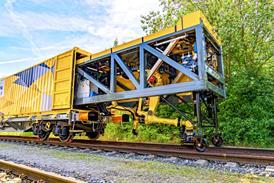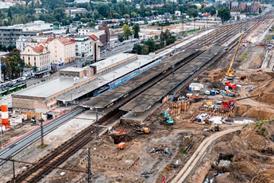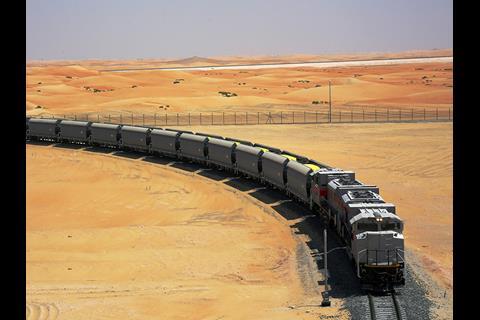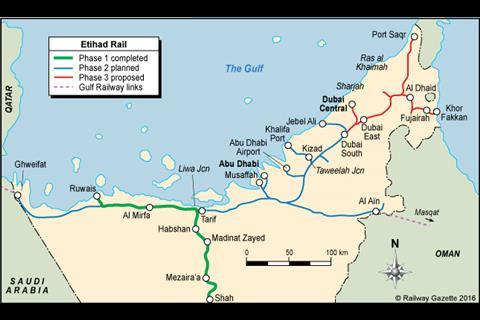UAE: National rail developer Etihad Rail announced on January 26 that it had suspended the tendering process for Stage Two of the project and informed all the bidders in writing.
Etihad Rail recently started commercial operation on the initial phase of the planned network, which links Shah and Habshan to the port of Ruwais in the emirate of Abu Dhabi, after receiving the final safety authorisations from the Federal Transport Authority in December 2015.
Stage Two envisages extension of the railway westwards from Ruwais to the Saudi Arabian border at Ghweifat and east from Tarif to the border with Oman at Al Aïn, together with branches serving Mussaffah, Khalifa Port and Jebel Ali Port in Dubai.
The company said it had suspended the tender process while it reviewed ‘the most appropriate options’ for the timing and delivery of the second phase. Describing the rail network as ‘one of the biggest and most complex infrastructure projects ever undertaken in the UAE’, Etihad Rail Chairman Nasser Alsowaidi said ‘as we enter 2016, we have been working closely with our partners and stakeholders to assess our strategic priorities for the year. As a result, a decision has been taken to suspend the tendering process for Stage Two while we review the most appropriate timing for this investment.’
On January 18 Etihad Rail confirmed to Railway Gazette International that it had ‘introduced a restructuring initiative across the company to further streamline our operations as well as our internal procedures and processes. Like any other company, we regularly review our operations in light of strategic priorities. These changes involve a number of staffing adjustments, as we move towards a flatter management structure, and encourage greater adoption of shared resources and more efficient ways of working.’ Local reports suggest that this may affect up to 30% of the workforce.
Etihad Rail said the decision to suspend the Phase 2 tendering would have ‘no impact’ on the Stage 1 operations, which had already transported 4 million tonnes of sulphur to Ruwais on behalf of Abu Dhabi National Oil Company. It said that it expected to transport more than 7 million tonnes of sulphur per year ‘once Stage One reaches full commercial capacity’.



















